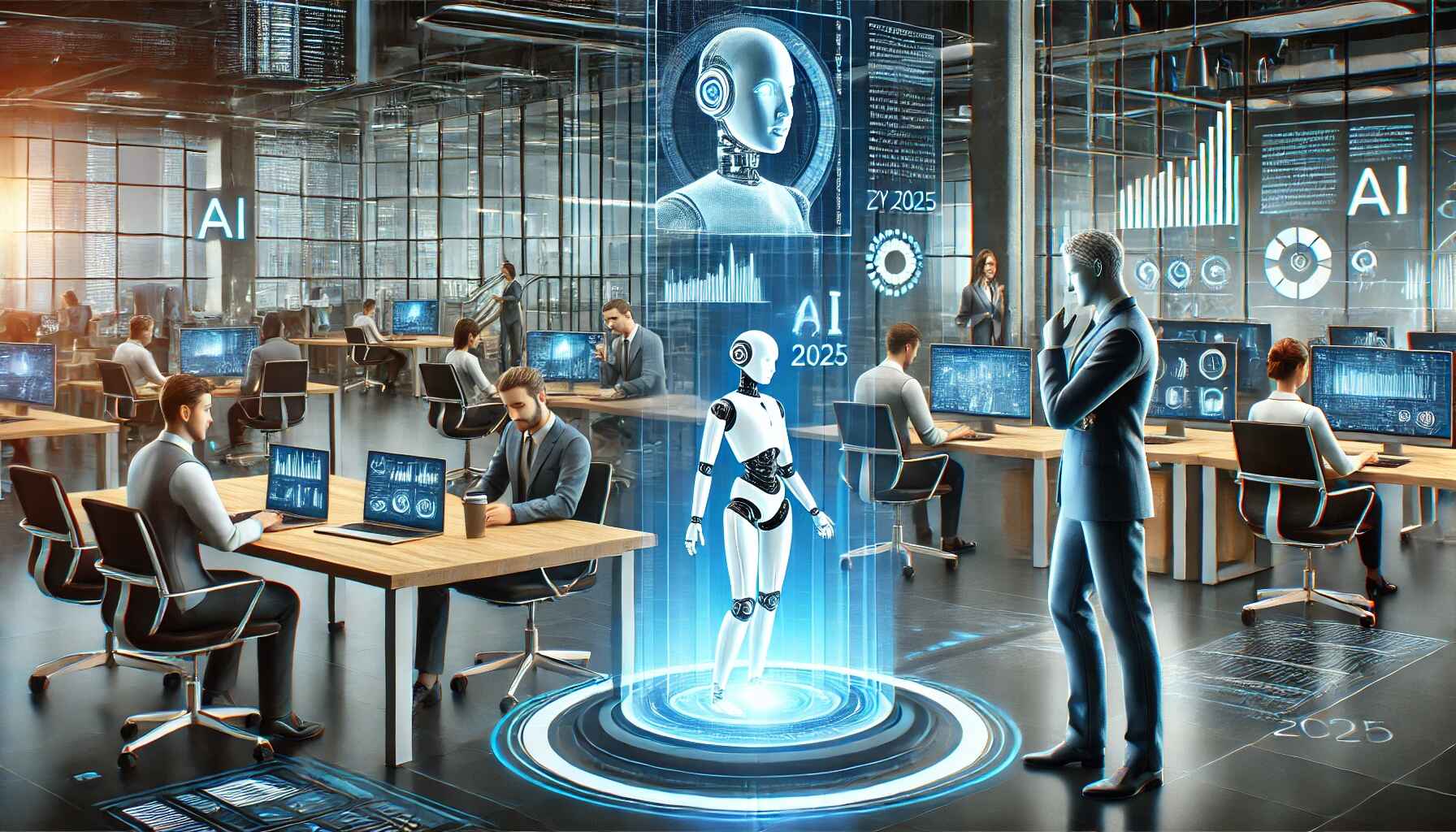- Posted On: 2024-11-23
- Posted By: Shacara
AI in 2025: How It Will Transform Careers and Workplaces
The rapid advancement of artificial intelligence (AI) continues to reshape the workplace. By 2025, experts predict that AI will not only assist employees but also replace some full-time roles, leading to a significant rise in gig employment and freelance opportunities. While these changes may seem daunting, they also present unique opportunities for individuals and organizations to adapt and thrive in an evolving workforce.
Here’s an in-depth look at how AI will impact careers, workplace culture, recruitment, and employment trends by 2025.
The Role of AI in Job Automation
AI is already automating tasks across industries, and its reach is only expanding. From administrative roles to data analysis, AI tools can perform repetitive tasks with speed and accuracy, freeing up human workers to focus on more complex and creative activities.
By 2025, certain full-time roles may be replaced entirely by AI systems, particularly in industries where tasks are routine and data-driven. However, AI is not expected to eliminate jobs outright but rather shift the focus toward roles requiring adaptability, problem-solving, and emotional intelligence.
Key Impacts of AI on Job Automation:
- AI will take over repetitive and administrative tasks, improving efficiency.
- New roles will emerge in AI development, implementation, and oversight.
- Workers will need to focus on skills that complement AI, such as creativity and strategic thinking.
Building Comfort with AI in the Workplace
Adopting AI is not just about implementing new tools; it’s about creating a culture that embraces innovation. Employees must be open to learning about AI and integrating it into their workflows, while leaders should foster an environment of curiosity and adaptability.
Steps to Build AI Comfort:
- Encourage continuous learning through workshops and training programs.
- Create a safe environment where employees can experiment with AI tools.
- Highlight success stories where AI has enhanced productivity and decision-making.
Organizations that successfully integrate AI into their culture will see improvements in efficiency, customer service, and overall workplace satisfaction.
The Growth of the Gig Economy
One of the most notable trends linked to AI’s rise is the expansion of the gig economy. Companies are increasingly hiring freelancers and contractors for specific projects, rather than maintaining large, permanent workforces.
Why the Gig Economy Is Growing:
- AI allows companies to manage flexible, project-based teams efficiently.
- Freelancers can bring specialized skills to short-term projects.
- Gig employment offers workers more freedom and diverse opportunities.
This shift could lead to changes in labor laws, requiring governments and organizations to address issues like worker protections, remote work policies, and benefits for non-traditional employees.
AI in Recruitment: Enhancing Hiring Processes
AI is revolutionizing the recruitment process, making it more efficient and personalized. By 2025, AI-based assessments and digital interviews will play a central role in talent acquisition.
Benefits of AI in Recruitment:
- Efficiency: AI can quickly screen resumes, saving time for hiring managers.
- Fairness: Structured interviews powered by AI reduce biases and improve decision-making.
- Personalization: Candidates receive detailed feedback, enhancing their experience.
AI tools also help employers identify candidates who might misuse AI during assessments, ensuring fair evaluations.
Addressing the Fear Factor
The rapid adoption of AI has sparked concerns about job security and ethical implications. While these fears are valid, experts emphasize the importance of regulation and ethical guidelines to ensure that AI serves as a productivity tool rather than a disruptive force.
How to Mitigate AI-Related Fears:
- Establish clear regulations to protect workers’ privacy and confidentiality.
- Educate employees on the benefits of AI and its potential to enhance their roles.
- Promote transparency in how AI tools are used within organizations.
As workers become more familiar with AI, fear will give way to confidence in leveraging these tools for growth and efficiency.
Leadership in an AI-Driven Workplace
The role of leaders will evolve as AI becomes more prominent. Instead of focusing on controlling information, leaders will guide teams to use AI ethically and effectively.
Key Leadership Traits for 2025:
- Adaptability: Staying updated on AI trends and applications.
- Guidance: Helping employees integrate AI into their workflows.
- Ethics: Ensuring AI is used responsibly and transparently.
Leaders who embrace these traits will position their organizations for success in an AI-driven future.
Final Thoughts
By 2025, AI will significantly transform the workplace, replacing some full-time roles while creating new opportunities for gig workers and specialized professionals. The key to thriving in this environment lies in adaptability, continuous learning, and embracing AI as a tool for innovation.
For workers, this means focusing on skills that complement AI, such as creativity, critical thinking, and emotional intelligence. For organizations, it’s about fostering a culture that values innovation, transparency, and ethical practices.
AI is not just a disruptor—it’s a catalyst for growth. By preparing for these changes now, both individuals and businesses can harness the power of AI to achieve greater success in the years to come.









